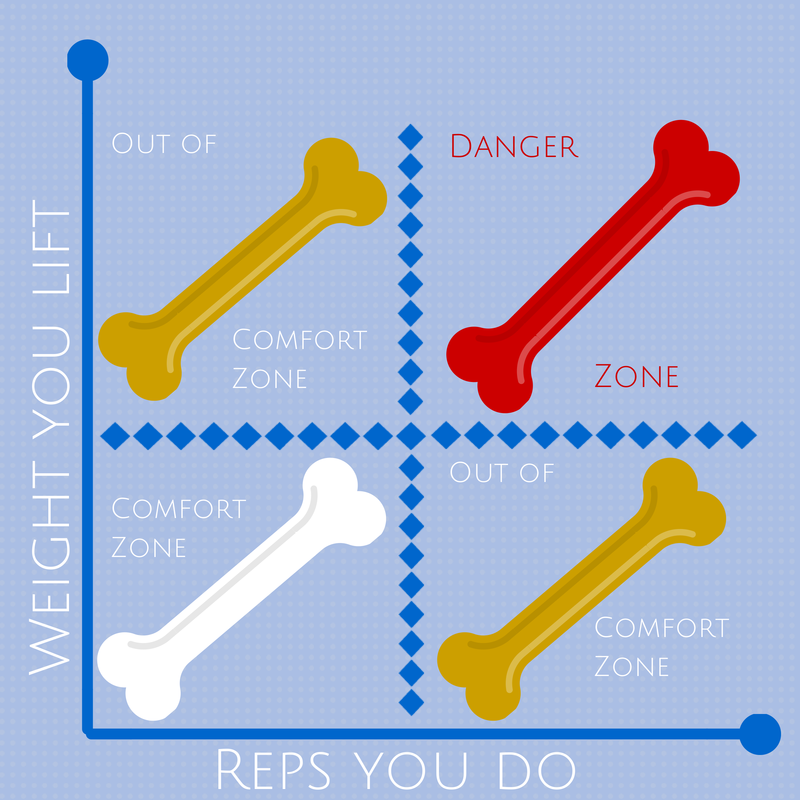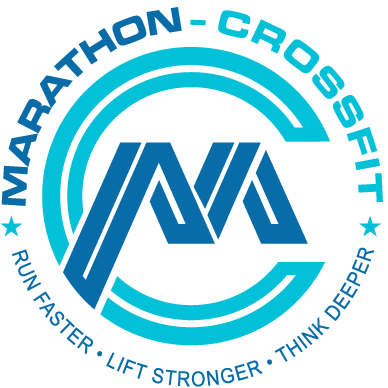Injury free training:
Can I hurt myself lifting weights ?
Yes, you can severely hurt yourself lifting weights so be smart about it:
What usually happens, when people hurt themselves lifting is that the excercises are being done with bad form, with too much weight or without a spotter. Injuries in weightlifting can be very severe, especially when the pounds are being lifted overhead. Always remember that Newton's laws will catch up on you if you lack the strength and the barbell will make its way to the ground either way. The heavier the weight, the more likely it will travel to the ground ignoring your skin and bones. Be wise, train reasonably.
Your risk of injury is a function of the repetitions you do and weight you lift:
The more repetitions you do with heavier weight, the more likely it gets you get injured. Having said that always reach your maximum weight on any given excercise from below. Do a proper warm up and make that one rep max the highlight of the day. Also get a spotter, because if you already know that you only can lift this weight once, it is not unlikely that you will miss that rep and need someone to help you out. In lack of a spotter, set up a power rack accordingly so that the might of the weight does not come crushing down upon you.

This is how the risk of injury looks:

Comfort zone Low Weight, Low Repetitions
In this area you should stay for the start to perfect your form. It will pay off later. It will enable you to train harder for longer while training more muscles for a longer time through full range of motion for all the movements you do. Don't be disheartened by people smirking at you for using small weights in the beginnning. You will surpass them soon enough and smirk at their (literally) half squats and cheat chicken wing bench presses.
Out of comfort zone: Weight you lift
Don't set yourself up for a powerlift and high reps at the same time. If you want to do multiple repetitions with very high weight allow for enough recovery between the reps. 3:00 minutes work very good for me. Add weight in 2.5kg to 5kg increments, not more. If you plateau (you can't lift heavier for a certain while), don't panic and do something stupid. If you want to muscle through a plateau try to rearrange the amount of reps you do, rather than unplanned weight increase. Low rep, high weight training for me personally is 8 reps or lower for any given excercise.
Out of comfort zone: Repetitions you do
Look to crossfit to get some really nice high rep, low weight excercises. With these the challenge is to keep good form and stay mentally on the game throughout all the repetitions you do. At high weight this is kind of given, as you won't lift the weight anyway without paying close attention to everything. With high reps, one rep with less attention and that kettlebell or barbell will hit you in the neck. Not as dangerous as the big weights, still enough to injure you. I would consider anything high rep that has 8 or more repetitions per set.
Danger Zone: Too much weight and too many reps
You get into the danger zone when you do too much too fast. Push your self either by increasing reps or increasing weight. Not both at the same time. That is a recipe for quick injury. Have a plan and stick to it. Your muscles and bones will appreciate not being ripped apart to the point of failure.
Progress is made over time. Be smart and stay in the game.
Training is training and competition is competition. Challenge yourself in your training, but do not risk your season or health by getting impatient. You will improve graduallly and leaps in performance can't be forced, they will just happen the better your conditioning will get. If you force leaps in performance, you expose yourself to risk of injury and exclude yourself from further improvement. Be Smart, stay in the game.
Further reading
- 12 practical tips for fitness coaches to be healthier
- As a man thinketh for fitness coaches
- Best apps for fitness coaches
- Choose yourself for fitness coaches
- Deep work for fitness coaches
- Finish for fitness coaches
- Grit for fitness coaches
- How fitness coaches get mindfulness easily
- How fitness coaches get unlimited power for their clients
- Mastery for fitness coaches
- Rework for fitness coaches
- The ONE Thing for fitness coaches
- The power of now for fitness coaches
- The power of positive thinking for fitness coaches
- The power of thinking big for fitness coaches
